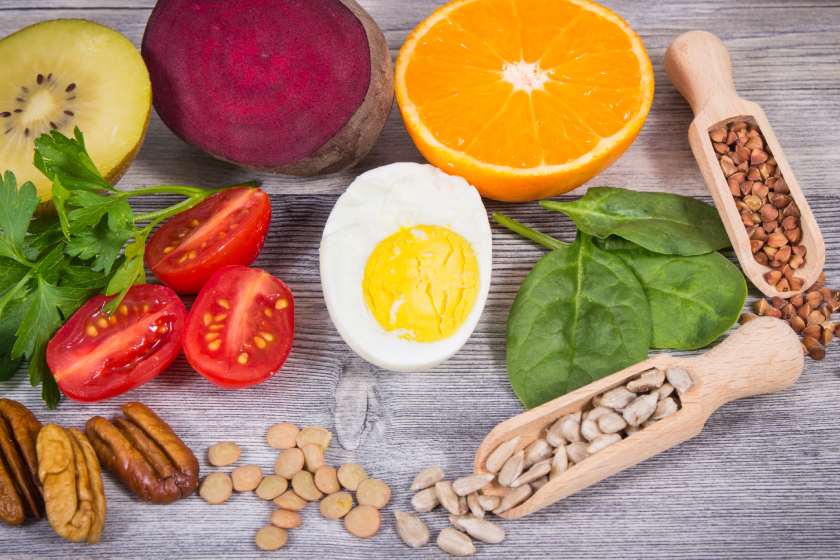Clear eyesight is a gift most of us take for granted until we start facing challenges. The trouble of wearing glasses all the time or the slight tinge of poking your eye with contact lenses to see the world clearly is a hassle most of us can avoid by focusing on one simple yet complex thing— nutrition.
In this blog, we are going to discuss in detail the role of nutrition in eye health. We will explore some important nutrients as well as list down the best foods that your eyes will absolutely love!
Understanding the Importance of Nutrition for Eye Health
Our eyes may look like a white canvas with a black dot, but in reality, it is composed of various specialized structures, each with its own unique function. So, just like any other part of our body, these structures require specific nutrients to function optimally and maintain their health.
Wondering what helps? Vitamins, minerals, antioxidants, and fatty acids. They support the health of these vital parts as well as protect against serious eye concerns. These include age-related vision problems such as macular degeneration, cataracts, and dry eyes.
The Retina: Essential Nutrients for Optimal Vision
The retina is the light-sensitive tissue located at the back of the eye. It converts light into electrical signals, allowing us to perceive images. Two important nutrients are important for optimal functioning of the retina. They are as follows:
Lutein and Zeaxanthin
These two powerful antioxidants are primarily concentrated in the macula, a small area in the centre of the retina responsible for sharp, central vision. They work towards effectively filtering out the harmful, strenuous blue light from your devices and protect against oxidative damage. As a result, it reduces the risk of macular degeneration and other age-related eye diseases.
Vitamin A
Vitamin A is important for the synthesis of rhodopsin. It is a pigment found in the retina that enables us to see in low-light conditions. As a result, adequate vitamin A is essential for maintaining good night vision. And what happens when there’s a deficiency? Well, it can lead to night blindness and eventually contribute to more serious eye conditions.
Also Read – 5 Eye Health Tips Essential for Optimal Vision
The Cornea and Lens: Protecting Against Cataracts
The cornea and lens are transparent structures located at the front of the eye that focus light onto the retina. To maintain their clarity and function, they require the following nutrients:
Vitamin C
Vitamin C is a natural antioxidant. As a result, it protects against oxidative damage due to free radicals. If your body lacks Vitamin C, it may impact your eye health, such that you may develop cataracts.
Vitamin E
Vitamin E helps protect the cells and tissues of the cornea and lens from damage. Additionally, it prevents lipid peroxidation. Thus helping you see clearly.
Tear Film and Ocular Surface: Preventing Dry Eyes
The tear film and ocular surface offer moisturization to your eyes. They lubricate your eyes so that they can move without much friction and pain. Additionally, it protects against any foreign particles that enter your eye. To keep these two healthy, you will need:
Omega-3 Fatty Acids
Omega-3 fatty acids help prevent dry eyes. How? By supporting the production of tears and maintaining the tear film’s stability. Moreover, it reduces any inflammation and promotes eye comfort.
Vitamin D
Vitamin D is not just important for your bones but also for your eyes. It does a lot of things for your eyes, like improving tear function. Moreover, its antioxidant and anti-inflammatory properties may help prevent or slow down the progression of age-related macular degeneration (AMD).
Also Read – 5 Common Eye Conditions: Causes, Symptoms, and Treatments
Top Foods for Better Vision
Now that you know what nutrients you need, here’s the list of top 5 foods. Chances are you already know them but aren’t consuming them. Let’s take a look.
| Food | Rich in | Helps with |
| Leafy Greens (Spinach, kale, collard greens, and Swiss chard) | Vitamins A, C, and E, as well as lutein and zeaxanthin. | Protects against age-related vision loss and promotes overall eye health. |
| Carrots | Vitamin A and beta-carotene | Good eyesight |
| Citrus Fruits (Oranges, lemons, limes, and grapefruits) | Vitamin C | Protect the eyes from oxidative damage and supports the health of blood vessels in the eyes. |
| Fatty Fish (Salmon, tuna, trout, and mackerel) | Omega 3-fatty acids | Retinal health and prevents dry eyes |
| Egg | Lutein and zeaxanthin | Protects from blue light |
| Nuts and Seeds (Almonds, walnuts, chia seeds, and flaxseeds) | Vitamin E and omega-3 fatty acids | Overall eye health |
Conclusion
The best way to include their eye-saver foods in your routine is with a nutritious breakfast like a nut-filled oatmeal. Another way is to snack smart. Think of carrot sticks, sliced bell peppers, or a handful of almonds. Finally, make sure to include a variety of colorful fruits and vegetables. The more colourful it gets, the happier your eyes are
If you are looking for an eye hospital to address your vision concerns, look no further than Shree Ramkrishna Netralaya. We are dedicated to providing the best possible service. Contact us today.

